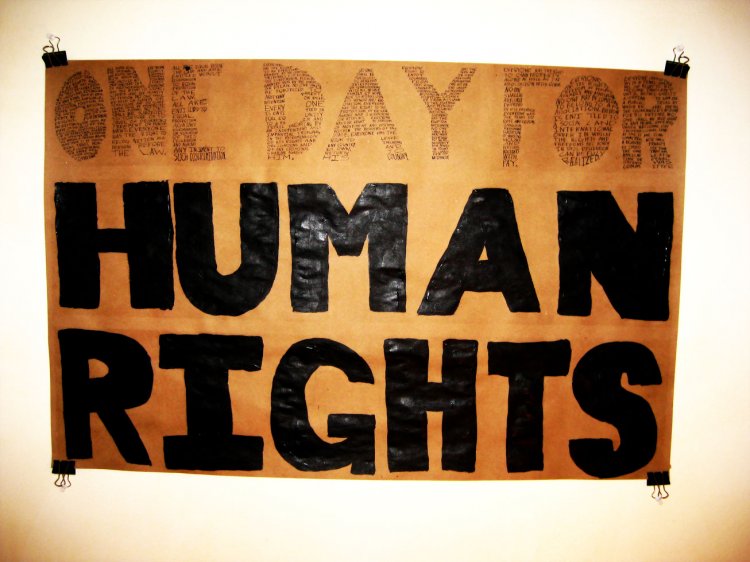Unmasking Oppression: Human Rights Abuses in India Spotlighted at CASR Symposium

03-10-2023
Alexandra Posta
East and South Asia Human Rights Researcher
Global Human Rights Defence
In a recent press conference convened by the civil rights advocacy group, Campaign Against State Repression (CASR), numerous voices emerged, echoing tales of alleged state repression faced by human rights defenders. The symposium, titled "Criminalizing Dissent: Voice of Political Prisoners and the Need For United Struggle," shed light on the experiences of individuals who claim to have endured hardships for asserting their democratic rights.
Asif Iqbal Tanha, a student activist, shared a disconcerting narrative of his time as a political prisoner in Asia's largest jail, Tihar. Tanha asserted that, under the pretext of counterterrorism efforts, individuals, particularly those from the Muslim community, find themselves incarcerated. He recounted his arrest during the Covid-19 lockdown, raising questions about the circumstances and the alleged police brutality he faced, including being tied to a tree and subjected to physical torture.
Mukesh Mauladh, President of the Zamin Prapti Sangharsh Committee (ZPSC), expressed optimism in the potential of diverse societal segments uniting for a common struggle. He highlighted the plight of Dalit in Punjab, who, despite promises of 1/3rd share of Panchayati land, found themselves in prison for demanding their rightful share. Mauladh unveiled a disturbing tactic employed by the state, linking the release of political prisoners to the cessation of land struggles.
The symposium also featured video messages from activists Hidme Markam and Soni Sori, detailing the violence faced by Adivasis in Bastar. Markam spoke of the state's encroachments on Adivasi territories, particularly targeting their "jal, jungle, and zameen." Sori, a tribal rights leader, shared her prolonged struggle against fabricated cases, emphasizing the persistent state-sponsored violence against Adivasis.
Bikkar Singh, financial secretary of ZPSC, emphasized the ongoing fight for land rights in Punjab, where the struggle for "jal and zameen" persists, particularly for the landless Dalit. Activist Atikur Rahman highlighted the medical neglect experienced during his arrest in Uttar Pradesh, stressing the need for collective resistance against oppression, irrespective of caste or religion.
The unfolding narratives presented by the speakers at the CASR press meet bring forth glaring human rights implications, invoking several fundamental principles enshrined in international agreements.
- Right to Freedom of Expression (Article 19, Universal Declaration of Human Rights): Student activist Asif Iqbal Tanha recounted his arrest during the Covid-19 lockdown for participating in anti-Citizenship Amendment Act-National Register of Citizens protests. His arrest, allegedly without a clear legal basis, suggests a potential infringement on the right to freedom of expression.
- Right to Life (Article 21, Universal Declaration of Human Rights): Reports of police brutality and violence against political prisoners, such as the physical torture experienced by Asif Iqbal Tanha while in police custody, raise serious concerns about the right to life.
- Right to Freedom of Assembly and Association (Article 20, Universal Declaration of Human Rights): The alleged state repression against individuals, including the imprisonment of Dalit in Punjab advocating for land rights, implies interference with the right to peaceful assembly and association.
- Prohibition of Arbitrary Arrest and Detention (Article 9, International Covenant on Civil and Political Rights): Asif Iqbal Tanha's arrest during the Covid-19 lockdown, seemingly without clear legal justification, points to a potential violation of the right to liberty and security of the person.
- Prohibition of Torture and Inhuman or Degrading Treatment (Article 5, Universal Declaration of Human Rights): Asif Iqbal Tanha's account of being physically tortured, including being whipped after being tied to a tree, raises concerns about the absolute prohibition of torture.
- Right to a Fair Trial (Article 10, Universal Declaration of Human Rights): If legal proceedings are manipulated or conducted unfairly, it could implicate the right to a fair trial. Specific details about the legal challenges faced by Soni Sori in her 12-year struggle against fabricated cases could be cited as an example.
The narratives shared during this press meet underscore a pressing need for vigilance against the alleged suppression of dissenting voices. The Campaign Against State Repression urges the international community to scrutinize these accounts and stand in solidarity against any violation of human rights, emphasizing the crucial role of united struggle in safeguarding democratic principles.
SOURCE
Counterview. (2 October 2023). Indian human rights defenders open up on 'state repression' during their jail term. Available at https://www.counterview.net/2023/10/indian-human-rights-defenders-open-up.html.




 GHRTV
GHRTV 




























